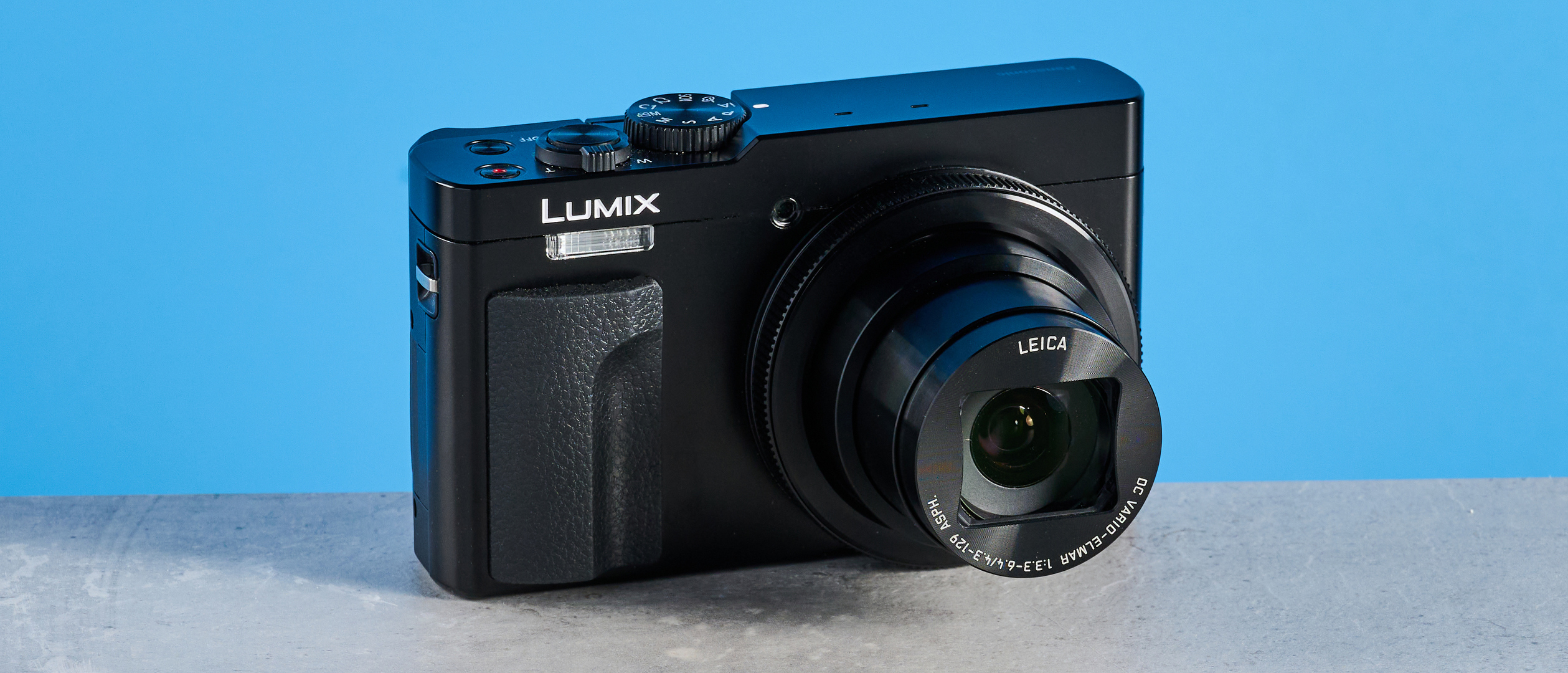Tom's Guide Verdict
The Tribit XSound Plus 2 offers decent performance for an attractive price. It impressed us with its punchy bass, especially given its size, plus its easy tandem hookup and respectable battery life. It isn’t dust-proof, though, and its tandem mode is limited to two speakers.
Pros
- +
Strong bass
- +
Twin speaker playback
- +
Decent battery
- +
Long wireless range
Cons
- -
Not dustproof
- -
Party mode is limited to two speakers
Why you can trust Tom's Guide
Price: $69 / £63
Colors: Black
Size: 7.8 x 2.8 x 2.6 inches
Weight: 28 ounces
Battery life: 24 hours (Tribit); 10-13 hours (testing)
Connectivity: Bluetooth 5.3
Waterproofing: IPX7
The Tribit XSound Plus 2 ($69) Bluetooth speaker packs powerful audio for the price, and I’ll admit to being more than a little surprised the first time I fired it up — I’d just returned from an evening jaunt to the pub on a rare sunny day here in the U.K., at which time my partner and I felt the need for a raucous Tuesday night singalong (just kidding, it was a Friday).
Normally, we’d turn to our puny Amazon Echo Dot (3rd Gen) and let our singing and tipsiness make up for the lack of audio fidelity. As such, my standards were about as low as my expectations when, in the merry spirit of ‘let’s give whatever this thing is a go’, I pulled the Tribit XSound Plus 2 out of its box and powered it on. I let out an audible “huh.” This thing sounded good!
Not only that, as I continued to test this portable, reasonably-priced speaker — in tandem with a matching second unit that Tribit also sent us — I only became more impressed. The XSound Plus 2 boasts strong battery life, easy and effective twin hookup with a second speaker, plus IPX7 waterproofing.
In fact, there isn’t a huge amount wrong with the XSound Plus 2, and all my gripes with it are fairly trivial. So, could it be one of the best bluetooth speakers for you? Find out in our full Tribit XSound Plus 2 review.
Tribit XSound Plus 2 review: Price & availability
The Tribit XSound Plus 2 is available from Tribit and Amazon, and costs $69 / £63. There are no funky colorways on offer, as with the JBL Go 4 I tested recently, so if you don’t want a black speaker, you’re out of luck with the Tribit.
Tribit XSound Plus 2 review: Design & controls
The Tribit XSound Plus 2 isn’t liable to win any design competitions. It’s an oblong-ish pod with round edges to house a 15W driver on each end, with a mesh gauze covering the front face, hiding the drivers. It certainly isn’t exciting, but nor is it offensive — it looks exactly as you’d expect a speaker to look, nothing more, nothing less.
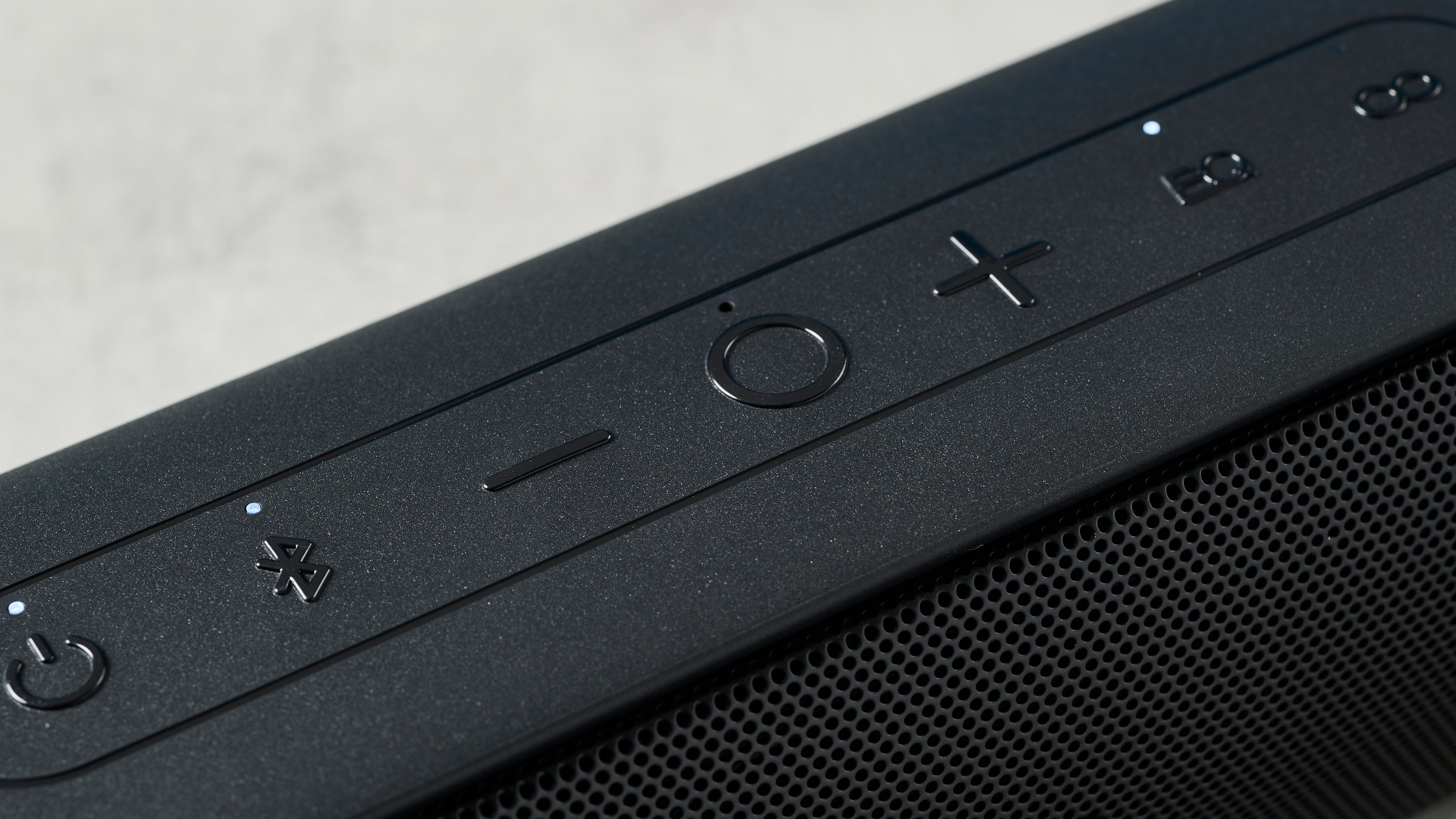
Build quality feels very good — the speaker feels very sturdy, although I’m not sure how well the metal speaker cover will stand up to being knocked about in a bag. It has a moderate heft to it, weighing in at around 28 ounces, but isn’t especially heavy. It’s relatively compact, too, measuring 7.8 x 2.8 x 2.6 inches, and I was able to fit two speakers in my work bag without much grief.
Along the top of the speaker are buttons for power, Bluetooth, volume, EQ and stereo pairing mode. All the buttons function properly, providing decent haptic feedback. On the base you’ll find rubber feet to stop the speaker from sliding around on surfaces.
Around the back of the speaker are a USB-C port for charging and a 3.5mm aux port for wired playback. These are hidden behind a firm rubber hatch. There’s also a wrist strap to help you carry the speaker around securely, although if you’re after something that’s easy to carry, check out the JBL Clip 5 with its carabiner-style clip.
Tribit XSound Plus 2 review: Features
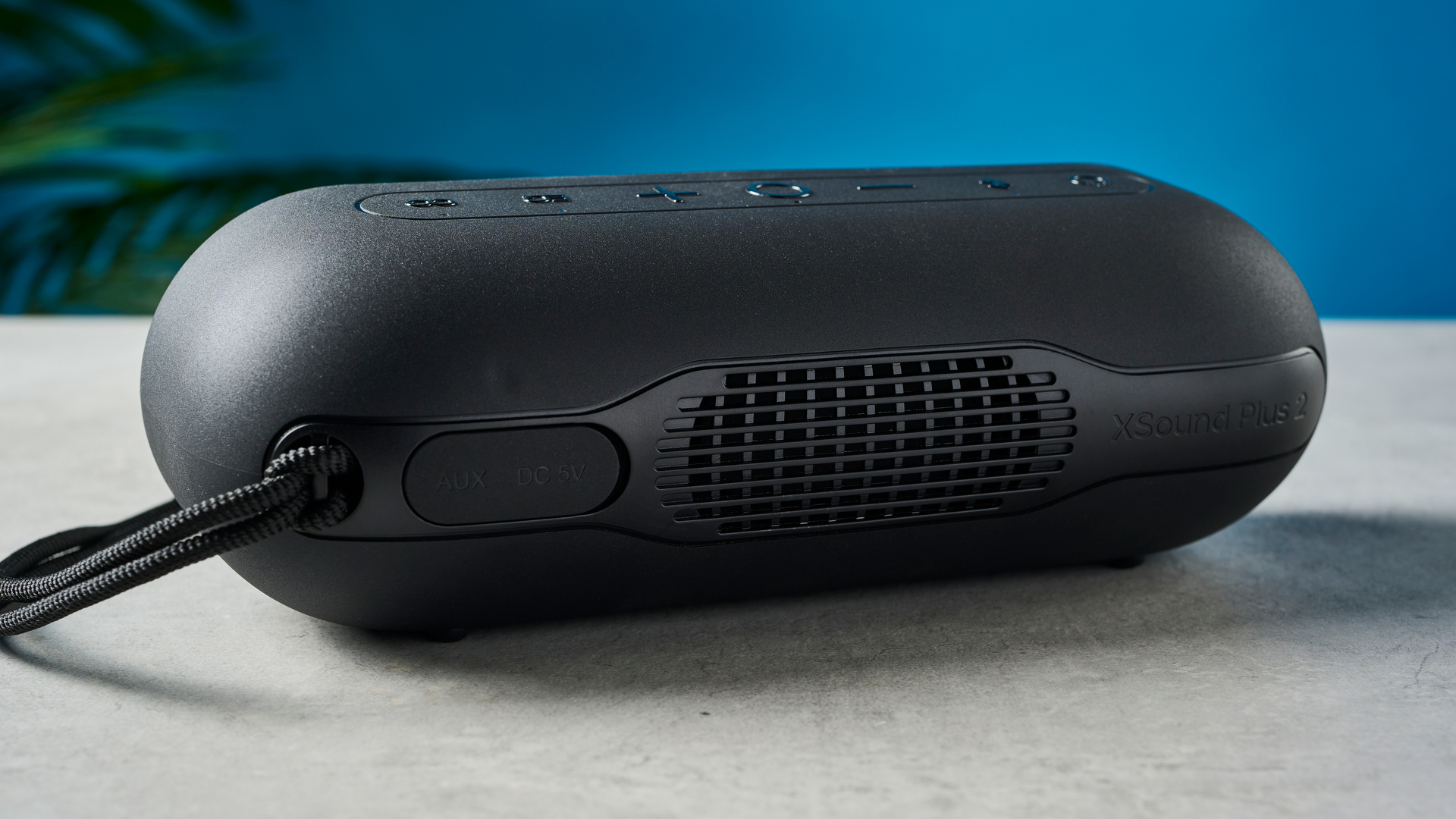
As an affordable Bluetooth speaker, the Tribit XSound Plus 2 is relatively feature-light, although there are a couple to know about. Firstly, the XSound Plus 2 is IPX7 rated, meaning it can be submerged in a meter of water for 30 minutes, making it a perfect pool-side speaker. Unfortunately, though, IPX7 means it isn’t dustproof at all, so it can’t come along with you to the beach. For an IP67 speaker (dust and waterproof), consider the UE Wonderboom 3.
The speaker also features a Party Mode, which lets you hook it up with another XSound Plus 2 unit. This is exceedingly easy to do, requiring one speaker to be connected to an audio source, followed by a push of the Party Mode button on each speaker.
You can choose the basic Party Mode which plays music from both speakers in mono, to effectively boost the volume when needed, or you can push the Party Mode button to switch to Stereo Mode, turning one speaker into the left channel and the other into the right channel.
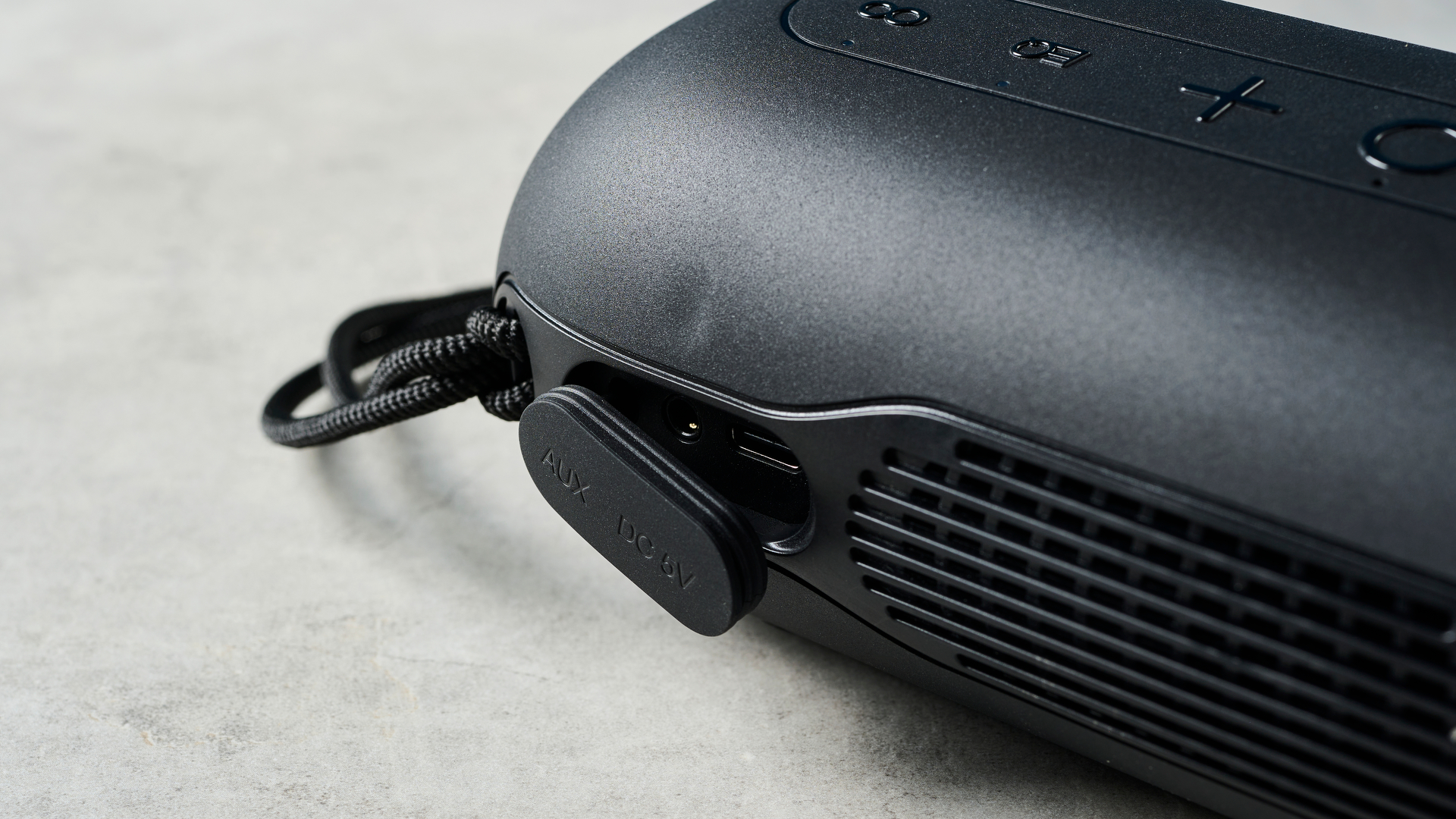
Stereo Mode works very well for a fixed setup, and I enjoyed listening to “Suzie Q” by Creedence Clearwater Revival as it was meant to be heard, with its guitars and bass playing through the left channel, drums and vocals through the right.
Naturally, if you want to boost sound equally for a large group or across a large area, Stereo Mode isn’t ideal. I set my speakers up in the garage as I worked on my bike and, as I moved around, I started missing parts of “Next To You” by The Police — the majority of Stewart Copeland’s drums play through the left channel, which was on the other side of the room. For those situations, Party Mode is better, providing a massive boost in volume. I tapped the button and switched instantly: problem solved!
Tribit XSound Plus 2 review: Sound quality
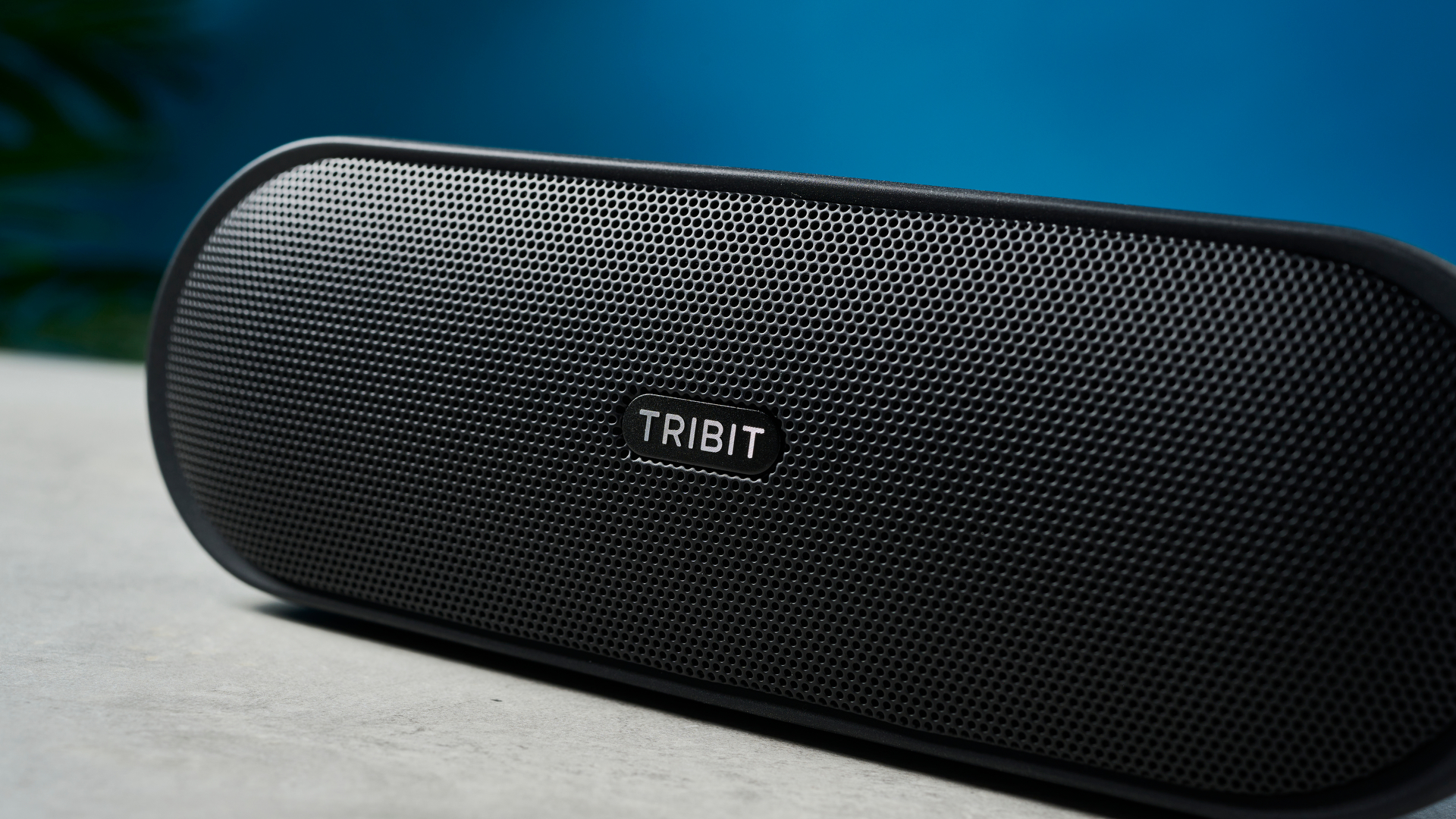
As I mentioned in my intro, I was impressed with the XSound Plus 2’s audio performance given its size and price, even using a single speaker instead of two in tandem.
Turning on the speaker, it defaults to the XBass On (i.e. bass boost) EQ, which I kept on. I listened to the “Outlandos D’Amour” album by The Police, and loved hearing Sting’s driving bass line underneath his howling vocals in the chorus of “Truth Hits Everyone”. Despite the bass being appropriately boosted, the mid frequencies of Andy Summer’s scratchy Telecaster riff and the piercing top notes of Copeland’s cymbals were fairly well amplified and easily distinguishable. The song sounded pretty good.
The two 15W drivers aren’t able to amplify sub-bass frequencies, so listening to sub-heavy dance music, like Netsky’s drum and bass classic “Memory Lane”, was a little disappointing, even with XBass on. However, I played some more radio-oriented (i.e. less sub-heavy) dance music, including “Marea (we’ve lost dancing)” by Fred again and The Blessed Madonna, where I was happy to hear the punchy, elongated bass notes coming through perfectly.
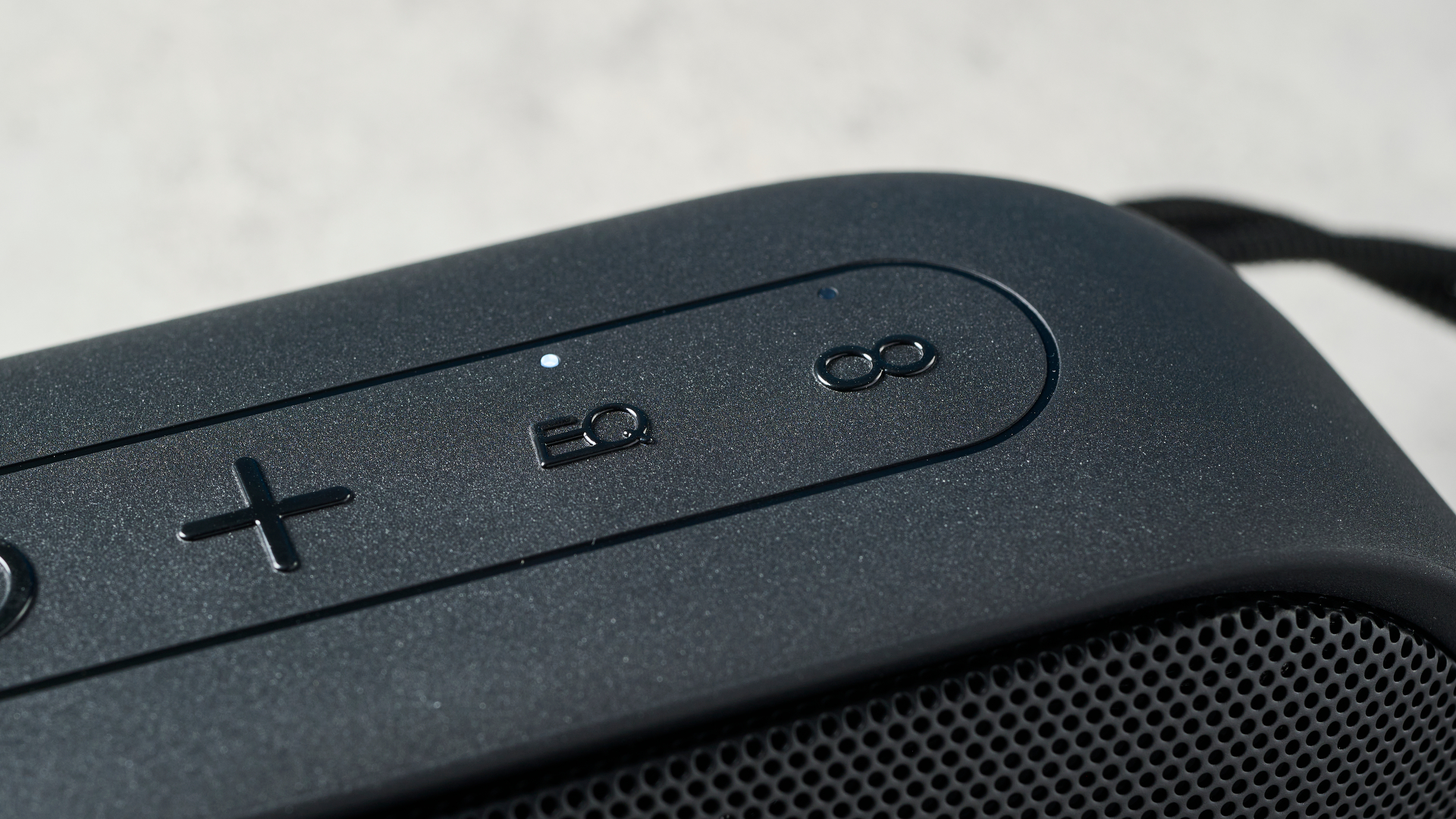
I then played the jazzy lo-fi track “After Hours” by Ben Jammin’ Beats, Illusionary and Chill Select, where I was happy to hear the song’s double bass being amplified well and with no distortion.
The XBass Off EQ preset is fine, but feels a little lackluster for bass-heavy music, so given the lack of distortion with XBass On, I mostly just stuck to that. The other preset EQs (all except Audiobook have to be selected in the app) aren’t worth their salt — the Rock preset, for example, totally lacks resonance and sounds tinny. Thankfully, you can set your own custom EQ in the Tribit app.
Tribit XSound Plus 2 review: Connectivity
The Tribit XSound Plus 2 features Bluetooth 5.3 connectivity, which Tribit claims will work at up to 150 feet, which should make it ideal for outdoor gatherings. I put their claim to the test, by walking across an open park with my phone while my partner kept the speaker. It suffered crackling after around 140 meters or 470 feet according to Google Maps. Pretty impressive.
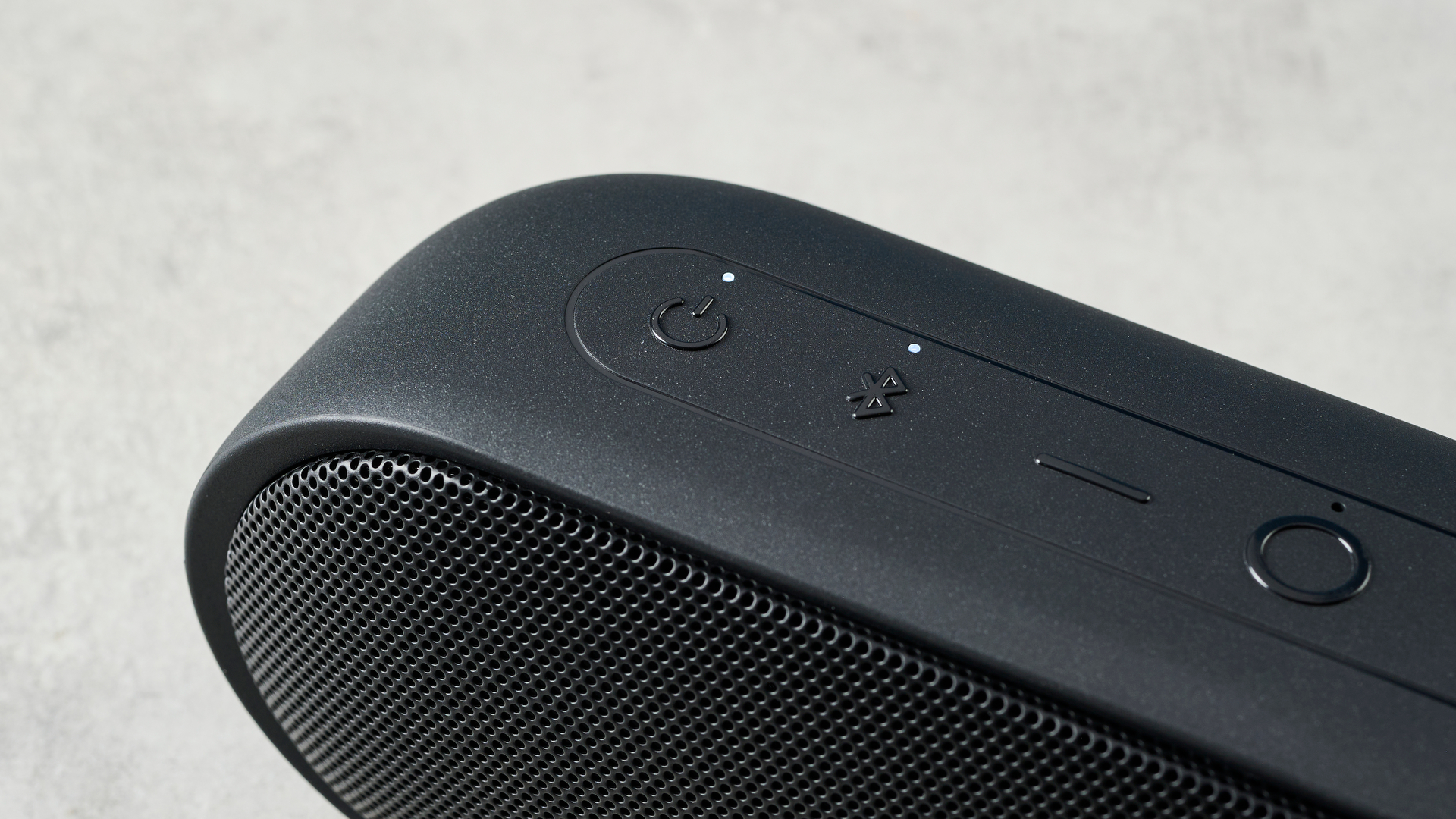
Indoors, I was able to get around 60 feet before the connection broke, which was still good enough to play music from pretty much anywhere in my (admittedly modest) house. In case you feel like going old school, the speaker does have a 3.5mm aux port, allowing you to hook up a wired connection.
Tribit does not list which audio codecs the XSound Plus 2 uses, although in reality this speaker is designed to soundtrack gatherings, where the difference between codecs likely won’t matter too much.
While I enjoyed using the Tribit’s Party/Stereo Mode, it’s limited to two devices only, which is a little disappointing. Two speakers will be plenty for smaller gatherings, but hooking up more speakers in tandem would make the XSound Plus 2 better suited to larger spaces or parties. If this is important to you, consider the JBL Clip 5 or Go 4, which can hook up to numerous other JBL devices via Auracast.
Tribit XSound Plus 2 review: Smartphone app
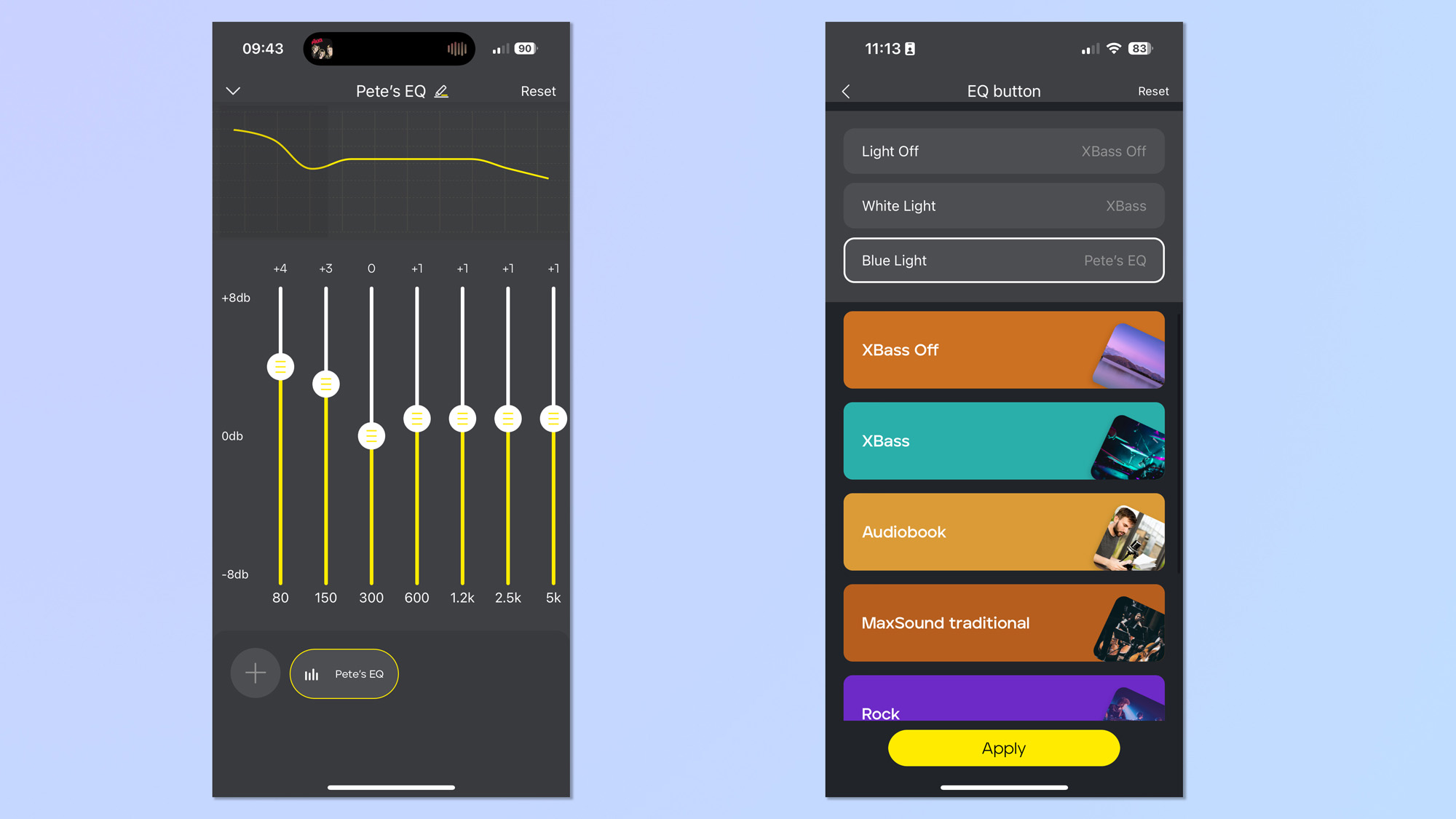
The Tribit app for iOS and Android is pretty good in my experience. It doesn’t hold a particularly inspiring rating on either the Google Play or iOS App Stores, but I’ve had no issues using it so far. I haven’t experienced any crashes or dropouts, it’s quickly recognized both the speakers I’ve connected over Bluetooth, and has allowed me to update firmware easily and reliably.
The app also adds some (albeit not much) extra functionality over the standalone speaker. You can use it to select a wider range of EQ presets and customize a 9-band EQ for yourself. You can also change which three presets the EQ button switches to, so you can ensure they’re your favorites.
Tribit XSound Plus 2 review: Battery life
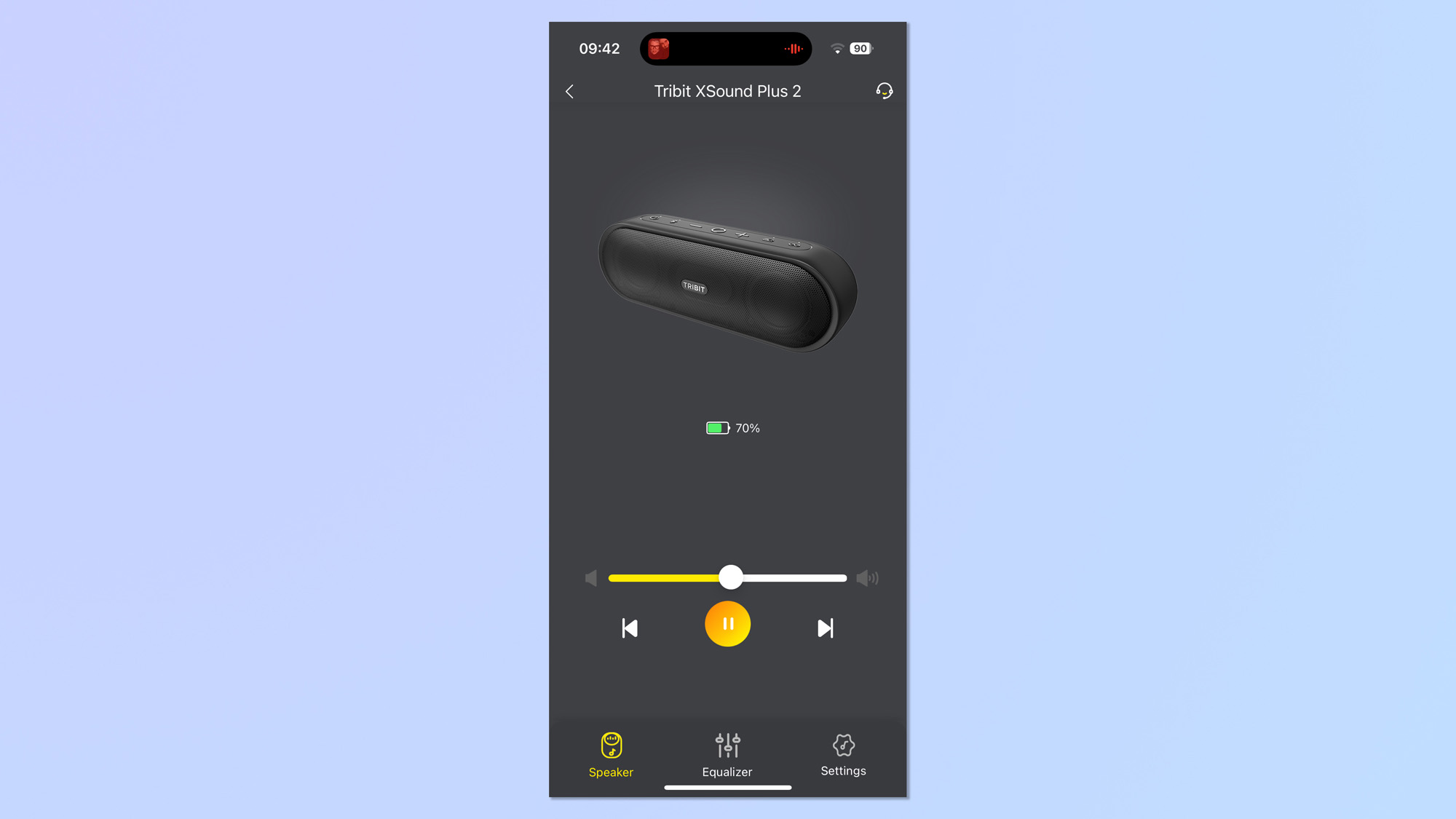
Tribit claims the battery in the XSound Plus 2 will last up to 24 hours, which would put the speaker on par with the Sonos Move 2 and UE Megaboom 3, two of our favorite portable speakers. That said, the Tribit is only rated for 24 hours at 60% volume and with XBass disabled.
After a full charge, with XBass turned on and at volumes of around 80-90%, both test speakers had 70% charge remaining after 3-4 hours of playback. Extrapolating, you can reasonably expect 10-13 hours of playback if you’re giving it the beans, which is better than the more expensive Sonos Roam at 10 hours.
Tribit XSound Plus 2 review: Verdict
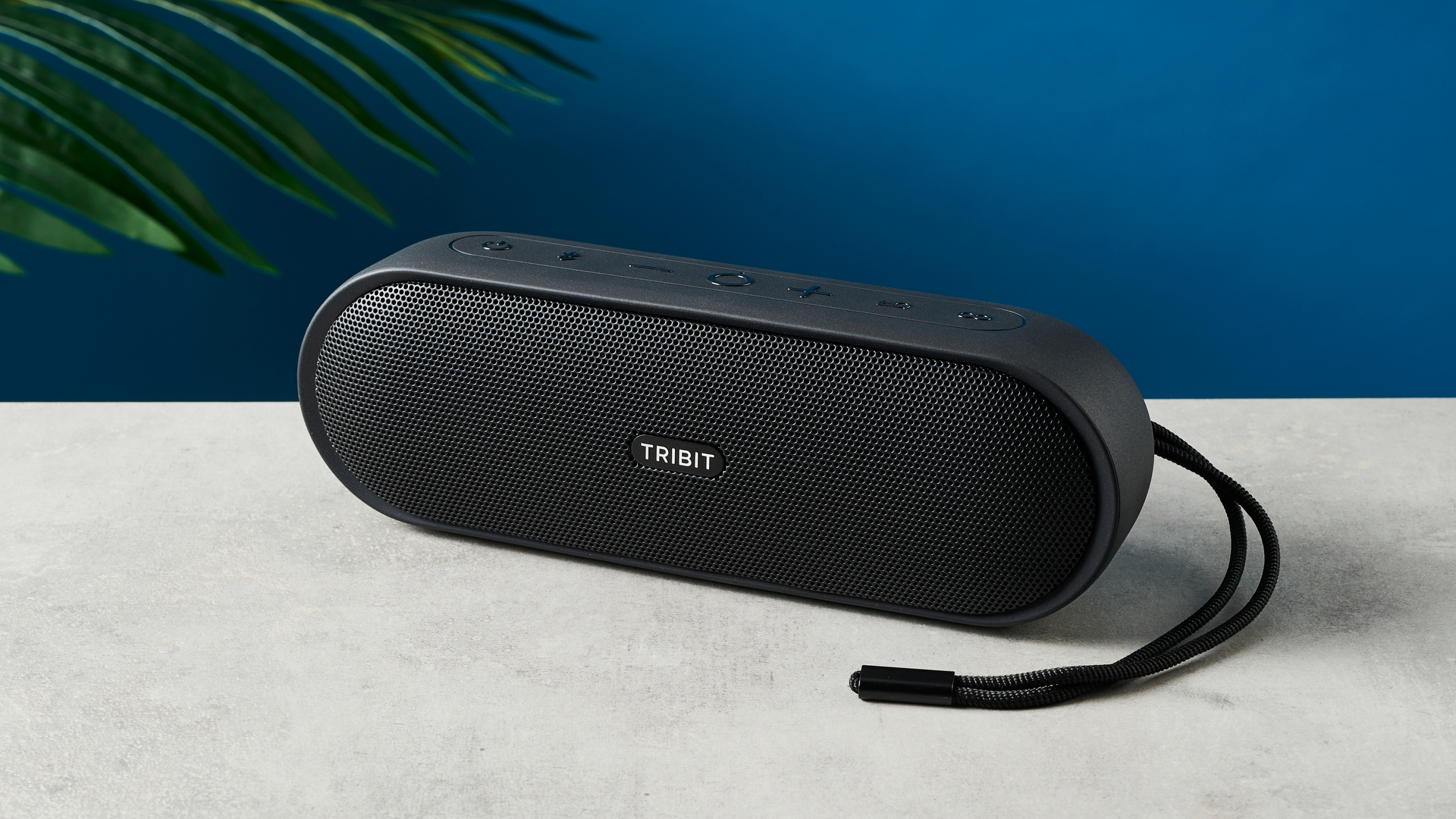
I’ve been very pleasantly surprised by the Tribit XSound Plus 2. It isn’t perfect: the lack of dustproofing will be a limiting factor if you want a truly outdoor-friendly speaker that’ll come anywhere with you. Then there’s the Party Mode cap of two devices, which won’t be enough to support moderate or large gatherings. The styling is a little bland too, I guess, but providing a speaker isn’t hideously ugly, what really matters more: the looks or the sound? I’d wager most would say the latter.
For under $70, the Tribit XSound Plus 2 represents good value for money. Although it doesn’t represent the pinnacle of audio fidelity, bass performance is strong, despite the speaker being compact enough to slot easily into a bag. Connection and tandem hookup are both easy and reliable, while the smartphone app, although relatively basic, works as it needs to and offers extra functionality over the standalone speaker. There’s also IP level 7 waterproofing, so while it might not withstand the beach, it’ll certainly hold up to the bathtub. The Tribit XSound Plus 2 is well worth adding to your shortlist.

Peter is a Senior Editor at Tom's Guide, heading up the site's Reviews team and Cameras section. As a writer, he covers topics including tech, photography, gaming, hardware, motoring and food & drink. Outside of work, he's an avid photographer, specialising in architectural and portrait photography. When he's not snapping away on his beloved Fujifilm camera, he can usually be found telling everyone about his greyhounds, riding his motorcycle, squeezing as many FPS as possible out of PC games, and perfecting his espresso shots.

